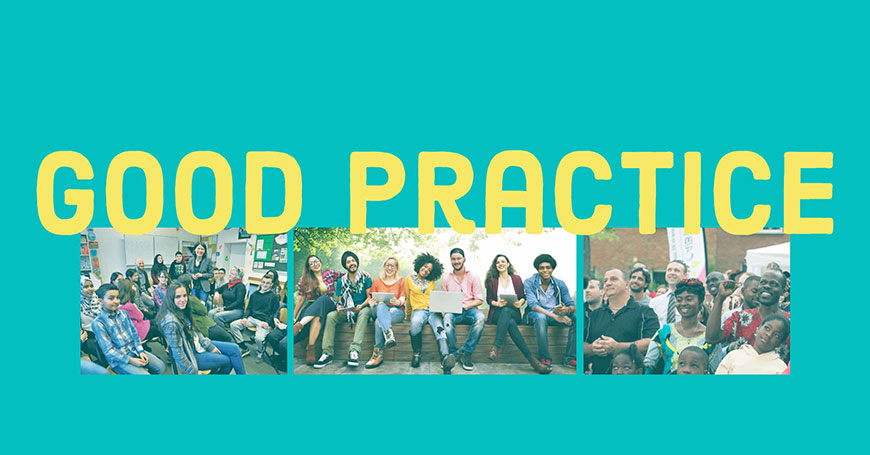Intercultural cities: good practice examples

The first step is the adoption (and implementation) of strategies that facilitate positive intercultural encounters and exchanges, and promote equal and active participation of residents and communities in the development of the city, thus responding to the needs of a diverse population. The Intercultural integration policy model is based on extensive research evidence, on a range of international legal instruments, and on the collective input of the cities member of the Intercultural Cities programme that share their good practice examples on how to better manage diversity, address possible conflicts, and benefit from the diversity advantage.
This section offers examples of intercultural approaches that facilitate the development and implementation of intercultural strategies.
Festival delle Culture
Purpose: The project aims at fostering social participation and engagement and making the migrants’ association protagonists and responsible of the communication about the topic issues....
Neuchâtel Action Week against Racism
Raising awareness of diversity, equal opportunities and non-discrimination Every March for the last 20 years, the Service de la cohésion multiculturelle (COSM) (Multicultural Cohesion Service) and...
Adaptation of Internally Displaced
Purpose: Promote adaptation and participation in the city life of newcomers (IDPs) Process: As a part of its Intercultural Strategy, the city authorities pay particular attention to facilitating...
Geneva: the City tackles hurtful words
At a time when social networks and digital communication are having a major impact on our everyday interaction, raising awareness of discriminatory remarks and speech is a real challenge for public...
Study in Lisbon programme
Purpose: The website “Study in Lisbon” is directed specifically at foreign students, encouraging them to pursue their studies in Lisbon (“10 reasons to study in Lisbon”) as well as providing...
Building human rights and equality competency
Purpose: to implement the City of Reykjavik Human Rights Policy; to enhance quality customer service with its emphasis on meeting the needs of a diversity of customers and with the creativity and...
Centre of Interculturality (“Núcleo da Interculturalidade”)
Purpose: Promoting intercultural integration in the city. Stimulus/Rationale: "Welcoming all communities with open arms does not make us feel less Portuguese, quite the contrary, because it reminds...
"Identity Map: the Language of Dissent"
Purpose: An artistic performance to minimise racial, gender or sexual discrimination and to promote tolerance and inclusiveness in the city community Process: Discrimination on the grounds of...
Conseil pour l’immigration de Berlin-Neukölln (« Migrationsbeirat »)
But : Un conseil spécial consacré aux migrants vivant à Neukölln. Structure: Processus : Berlin-Neukölln a créé une instance spécialement dédiée aux migrants qui vivent à Neukölln au sein de son...
Weeks of culture
Purpose: Fostering intercultural exchange and sharing traditions Process: The Council of National Communities of Melitopol usually holds a one or two-day Reporting Event annually as part of the...


